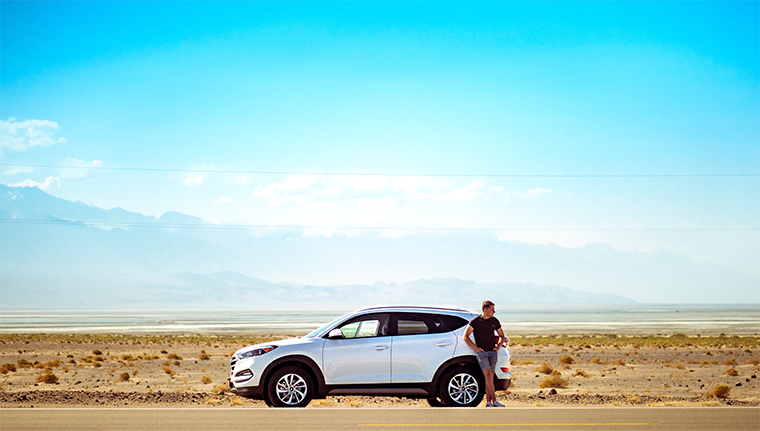
While most might fear getting stranded in the winter months, summer should be no less of a concern. With more people out on the highways, July and August are two of the highest months for fatal traffic accidents according to the National Highway Traffic Safety Administration.
However, several accidents can be avoided by being a defensive driver, keeping your phone put away, and by keeping your car well maintained.
-
Keep your car clean.
Winter, especially in snowier states, is very hard on your vehicle. Make sure that you clean all of the dirt and oil off of your car and especially off of the undercarriage once the weather starts to warm up. As you wash the outside of your car, be on the lookout for any rust spots. This can be an indicator of a bigger problem with items such as brake lines and fender wells. Once the outside of your vehicle is cleaned, move on to the inside. Road salts that are tracked into your car can corrode your floorboards over time.
-
Complete a full check and audit.
Review wiper blades, seals, and other rubber components for any winter wear and tear and if needed, replace them. Next, move on to your tires. Summer weather makes the air inside of your tires expand, putting them at a greater risk for a blowout. Regularly check your pressure and adjust according to the specifications listed on the driver’s side door sticker to avoid over or under inflated tires. Once your pressure is measured and okayed, it’s time to check the tread on your tires. Don’t forget about checking your spare’s pressure and tread as well!
Now it’s time to pop the hood. Start by squeezing the hoses to test for any cracks and check for frayed belts that could indicate leaks. Tires aren’t the only thing that the warmer weather can affect, make sure to test your battery as well. When that’s done, complete an audit on your vehicle’s big five fluid levels: oil, coolant, transmission, power steering, and brake fluid.
Lastly, be aware of your suspension. If your winter was filled with potholes, there’s a chance that your car could be ready for a tune-up. Replacing worn shocks, springs, and joints will make the steering more alert, causing the wheel to react directly and predictably so that you can have more control.
-
Be knowledgeable and ready in case your car overheats.
A car overheating can be scary. Knowing what to do can help you stay calm, make smart decisions, and avoid any further damage to your vehicle. For starters, there are several causes for why a car might overheat but by following steps one and two, most are avoidable.
If you find yourself in an overheated vehicle, you should immediately pull over. You can try doing the following to cool off your engine.
- Turn off the air conditioner
- Turn on the heater
- Put your car in neutral or park and rev the engine
- Open the hood
- Never attempt to remove the radiator cap while the engine is hotOnce your vehicle has cooled off, carefully check your coolant levels. If the coolant is not the issue and your vehicle continues to overheat, get your car to a body shop ASAP.
Every season brings its own troubles, but regular and proper vehicle maintenance is the key to keeping your car safe and on the road.

